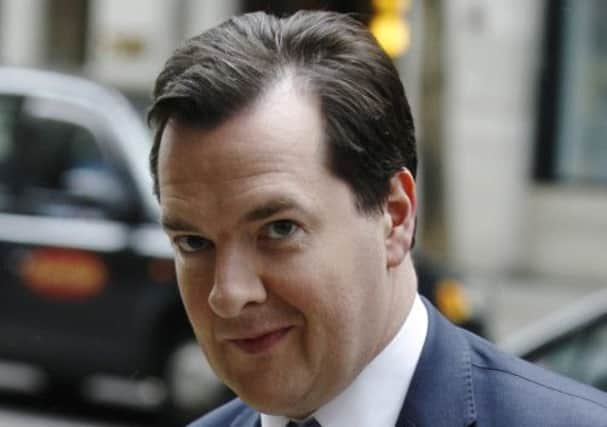Osborne speech tipped to start Lloyds stake sale


The sale of the UK government’s 39 per cent holding in Lloyds is likely to take the form of discounted shares being offered to the public, who would be given the chance to buy stock at a lower price than that available to big investment funds.
There would also be incentives for members of the public to hold on to the shares for several years.
Advertisement
Hide AdAdvertisement
Hide AdOsborne’s announcement, which is expected to be delivered at his annual policy address on 19 June, will also indicate plans for the disposal of shares in Royal Bank of Scotland, although the sale of the 81 per cent stake RBS would come after the Lloyds deal.
The Treasury declined to comment on the report, and Lloyds said it was a matter for the UK government.
Today, the Parliamentary Commission on Banking Standards is putting the finishing touches to its 600-page report, which will include proposals to improve standards and culture within UK banks. The committee was set up by the UK government in July after Barclays was found to have manipulated global interest rate benchmarks, sparking public outrage.
One of the areas of the report, which is being debated today and tomorrow, will be the future of RBS. Some members of the commission have called for the bank to be broken up, with its toxic assets hived off into a “bad bank”, leaving the resulting “good bank” better placed to increase lending to households and businesses.
The commission’s final proposals will back regular claims that there is not enough competition within the industry and that the UK’s major banks are still not adequately regulated.
“One of the key issues is that the major banks are too big and too complex to be able to provide effective corporate governance,” one commission member said.
The commission may also recommend a review into the viability of an industry-wide IT platform, which would enable customers to keep their account numbers when they change banks.
Excessive pay will also be tackled, with the committee likely to recommend tougher sanctions against executives associated with failed banks to stop them working in the industry.
It is thought that the commission is aiming to publish the report on 17 June, prior to Osborne’s speech.